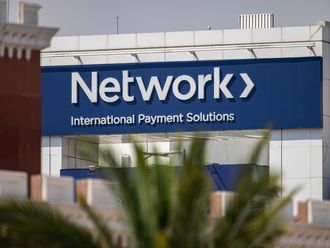Dubai: GCC’s banking sector is not expected to see a big surge in mergers and acquisitions (M&A) although a few big deals last year have created rumours on potential deals across the region, according to bankers and analysts.
National Bank of Abu Dhabi (NBAD) and First Gulf Bank (FGB) in the UAE recently merged to create the largest bank in the UAE.
Masraf Al Rayan, International Bank of Qatar and Barwa Bank are in the due diligence phase of a planned three-way merger that would create the largest Islamic bank in Qatar. Saudi British Bank and Alawwal Bank are discussing a potential merger that would create the third-largest bank in Saudi Arabia. A surge in mergers and acquisitions among banks in GCC countries is unlikely due to structural impediments, despite market conditions that appear conducive and numerous rumours about potential deals, Fitch Ratings said in a recent note.
“We believe tie-ups will be limited to those that create leading domestic market players or allow shareholders to realise value immediately upon the inception of the merger,” said Redmond Ramsdale, Senior Director Financial Institutions.
Banks across the region are facing pressure on profitability and tighter liquidity, especially in countries where public sector deposits have been withdrawn from banks to shore up government finances weakened by lower oil prices. The UAE, Bahrain and, to some extent, Oman would benefit from consolidation as many banks in these countries lack sufficient scale.
“While these conditions might increase motivation for M&A and some banks are discussing potential deals, we believe shareholder appetite will be limited, given the banks’ sustained solid profitability and the prevalence of large private local shareholders in some GCC countries,” said Ramsdale.
Some countries have only a small number of local banks, which limits competition. This means that profitability, although down, has remained solid despite the macroeconomic pressures and is therefore less likely to be a driver for M&A. Saudi Arabia has only 12 local banks; Qatar and Kuwait each have only 11.
Stumbling block
“There is no compelling reason for a big number of regional banks to rush into merger deals. We do not expect to see many M&A deals in the UAE banking sector. The rumours that were in the markets were subsequently denied by all parties,” said Dr Bernd van Linder, Chief Executive Officer of Commercial Bank of Dubai.
Fitch said the the ownership structure of GCC banks is also a stumbling block to M&A approvals - well established local private shareholders often control sizeable stakes and foreign banks only hold minority stakes. Cost savings are often put forward to support deals but these are rarely sufficient to convince shareholders, as cost-cutting in the GCC is difficult, and shareholders tend to have shorter-term objectives such as cash realisation.
M&A deals are much more likely to complete if they create domestic market leaders. Becoming a bigger bank strengthens ties to the government through business flow, and shareholders are also often attracted by stronger resilience of the new entity to credit or liquidity risk.
“Talks about M&A deals in the banking sector in the region have increased following the recent merger of NBAD and FGB. While some of these [talks] are rumours, some have seriously looked at the potential. But there are no indication that there will be a number of bank mergers happening this year,” said Dr Reinhold Leichtfuss, Senior Partner & Managing Director at BCG’s Middle East office.










